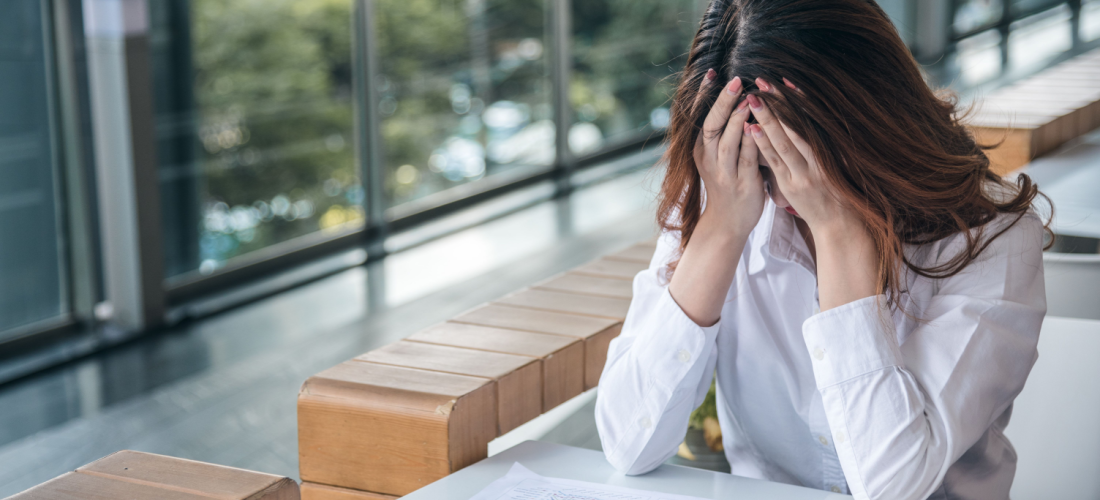Discovering Different Strategies in Therapy for Anxiety Problem for Long-term Adjustment
When taking on anxiety problems, it's important to explore a range of therapy methods. Each approach uses special insights and tools to assist you manage your signs and symptoms efficiently. You might discover that combining strategies can generate the very best outcomes. Comprehending the nuances of these approaches is crucial to fostering lasting adjustment. What if the right mix could launch a brand-new degree of psychological wellness for you?
Understanding Stress And Anxiety Conditions: A Short Review
Anxiousness conditions, which impact millions of people worldwide, can considerably impact life. You may experience overwhelming feelings of concern or stress that appear irrepressible. These feelings can cause physical signs and symptoms like a racing heart, sweating, or even wooziness. Typical kinds of stress and anxiety conditions consist of generalised anxiousness disorder, panic problem, and social anxiety problem. Each has special signs, but they all share a tendency to interrupt your routine and relationships.Understanding the origin of your anxiety is important. It might stem from genes, mind chemistry, or life experiences. Acknowledging your triggers can help you manage your responses much better. It's vital to bear in mind that you're not the only one in this struggle. Numerous individuals face comparable challenges, and looking for help is a solid step toward sensation much better. By discovering anxiousness conditions, you're already on the course to understanding and managing your problem much more efficiently.
Cognitive-Behavioral Treatment: Challenging Negative Idea Patterns
In Cognitive-Behavioral Treatment, you'll begin by identifying the adverse idea sets off that add to your anxiety. You'll work on replacing them with even more positive options once you identify these thoughts. Together, you'll construct effective coping strategies to assist handle your anxiety in daily situations.
Identifying Negative Thought Triggers

Identifying the particular triggers behind your unfavorable thoughts can be vital in taking care of anxiety when you experience moments of distress. Start by paying focus to situations that prompt feelings of concern or worry. Is it a crowded area, a future deadline, or a discussion with certain people? Write down these instances in a journal. This will aid you determine patterns in your reasoning. Notice physical sensations that accompany your unfavorable thoughts, like an auto racing heart or tightness in your upper body. By determining these triggers, you gain understanding into what's fueling your stress and anxiety. Understanding these connections is the initial step in testing those thoughts and eventually restoring control over your psychological reactions.
Changing Thoughts With Positives
Challenging negative thought patterns is a crucial action in transforming your mindset and decreasing stress and anxiety. You might often locate yourself entraped in cycles of self-doubt or devastating reasoning. As opposed to letting these thoughts dictate your sensations, technique changing them with reasonable choices or positive affirmations. When you believe, "I can not handle this," shift it to, "I can handle obstacles one step at a time." This easy change can significantly influence your mood. Regularly recognizing and responding to these adverse thoughts helps develop a much healthier internal discussion. Bear in mind, it requires time and effort, however consistently exercising this method can bring about lasting change, encouraging you to face anxiety with restored self-confidence and strength.
Structure Coping Approaches Together
Changing negative ideas is only the start of managing stress and anxiety successfully. To develop long-term modification, you require to build coping approaches that equip you. Cognitive-Behavioral Treatment (CBT) assists you determine and challenge those unhelpful idea patterns. With each other, you and your therapist can discover just how these ideas effect your feelings and behaviors.Start by developing sensible methods, like journaling or mindfulness workouts, that allow you to challenge stress and anxiety head-on. When you encounter your worries slowly, you'll discover to react in different ways.

Mindfulness and Acceptance-Based Approaches: Growing Present-Moment Awareness
As you browse the intricacies of stress and anxiety, incorporating mindfulness and acceptance-based methods can substantially boost your ability to cultivate present-moment understanding. By concentrating on the present moment, you'll discover that you can observe your ideas and feelings without judgment (Counseling services for anxiety). This method aids you acknowledge your anxiousness without really feeling bewildered by it.Engaging in mindfulness workouts, such as deep breathing, body scans, or assisted meditations, enables you to ground yourself in your present experience. Acceptance-based methods motivate you to accept your emotions as opposed to battle versus them. They shed their power over you.Incorporating these techniques into your daily routine can change just how you react to anxiety when you approve your feelings. You'll develop resilience and find out to browse difficult circumstances with higher convenience. Eventually, cultivating present-moment understanding lays the structure for enduring change, encouraging you to lead a more meeting life
Direct Exposure Therapy: Confronting Fears Slowly
Exposure therapy assists you confront your worries in a progressive method, making it much less frustrating. You'll find out techniques to deal with anxiety-provoking scenarios action by step, while additionally developing coping approaches to handle your reactions. This strategy empowers you to take control and reduce anxiety over time.
Gradual Direct Exposure Methods

When encountering stress and anxiety, progressively facing your concerns can be a powerful method to regain control. This technique, called steady exposure, entails slowly exposing yourself to the circumstances or items that trigger your anxiety. Beginning with much less intimidating situations and slowly function your method as much as even more difficult ones. If you're worried of public speaking, you might start by talking in front of a mirror, after that proceed to sharing ideas with a good friend, and eventually resolve a tiny team. Each action helps desensitize you to the anxiety, click here building your self-confidence with time. Bear in mind, it's crucial to pace yourself and commemorate small success as you move through this process, strengthening your capability to take care of stress and anxiety properly.
Building Coping Methods
Building reliable coping methods is necessary for managing anxiety, particularly as you confront your concerns progressively - Counseling services for anxiety. One powerful method is exposure therapy, where you start by encountering your fears in a controlled fashion. Start with less daunting situations and slowly function your means as much as more difficult scenarios. This gradual exposure aids desensitize you to anxiety causes, making them much less overwhelming.Incorporate relaxation techniques, such as deep breathing or mindfulness, to relax your mind during exposure. Track your progress, commemorating tiny success in the process to improve your confidence. Keep in mind, it's fine to take your time; the objective isn't perfection however steady improvement. By constructing these methods, you'll equip yourself to browse stress and anxiety and welcome life much more totally
Psychodynamic Treatment: Discovering Root Causes of Anxiety
Psychodynamic therapy discovers the unconscious mind, revealing the origin of your anxiousness. By analyzing your ideas, sensations, and past experiences, this strategy aids you discover underlying problems and unsolved concerns that may add to your existing anxiousness. You'll deal with a therapist to investigate youth experiences, relationships, and psychological patterns that shape your reactions today.As you acquire understanding into these much deeper layers of your psyche, you'll begin to recognize exactly how previous occasions influence your existing actions. This understanding can bring about catharsis, enabling you to process feelings you might have suppressed.Through the therapeutic relationship, you can also identify defense devices that may have developed over time, using a more clear path to change. Eventually, psychodynamic treatment outfits you with the tools to address your anxiety at its core, promoting enduring improvement in your psychological wellness.
Holistic and integrative Approaches: Incorporating Methods for Greater Effectiveness
Incorporating numerous therapeutic strategies can boost your journey towards managing anxiety more successfully. By integrating aspects from cognitive-behavioral therapy, mindfulness techniques, and holistic approaches, you can create a customized technique that addresses your one-of-a-kind requirements. As an example, you could make use of cognitive-behavioral strategies to challenge adverse idea patterns while incorporating mindfulness exercises to ground yourself in today moment.Additionally, checking out alternative techniques such as yoga exercise or meditation can advertise leisure and lower anxiety symptoms. This mix permits you to create better self-awareness and resilience.Experimenting with these diverse methods can aid you find what reverberates most with you. Remember, it's regarding locating a synergy that functions, instead of staying with a single strategy. This integrative strategy not just provides instant relief but likewise cultivates long-term abilities for taking care of anxiousness, equipping you to recover control over your life.
The Function of Assistance Solutions: Structure Resilience Via Link
While it might appear that taking care of anxiousness is a singular journey, having a solid support group can play a crucial duty in your resilience. Surrounding on your own with understanding good friends, family, or support system develops a safe area where you can openly share your sensations and experiences. When you get in touch with others, you remind yourself that you're not alone in this struggle.These partnerships offer inspiration and can supply useful coping approaches that have actually benefited others. It's additionally a possibility to gain perspective; pals can assist you see circumstances differently, reducing feelings of isolation.Moreover, emotional support fosters a feeling of belonging, which can greatly reduce anxiousness signs. By leaning on your assistance system, you can build resilience and tackle obstacles better. Remember, connecting for aid is an indication of toughness, and it can make all the distinction in your journey towards handling anxiety.
Frequently Asked Inquiries
What Are the Typical Signs of Anxiety Problems?
You might experience restlessness, exhaustion, difficulty focusing, irritation, muscle mass stress, and sleep disturbances. Physical symptoms can include quick heart beat, sweating, and shivering. Acknowledging these signs early can assist you look for ideal support and therapy.
The Length Of Time Does Treatment Normally Last for Anxiety Disorders?
Treatment for anxiety conditions normally lasts anywhere from a couple of weeks to several months. It actually relies on your individual demands, progress, and the techniques your specialist makes use of to help you manage your anxiety successfully.
Can Drug Be Utilized Together With Therapy for Anxiousness?
Yes, drug can certainly be used along with therapy for stress and anxiety. Integrating both strategies often boosts treatment effectiveness, assisting you handle signs while checking out underlying problems through therapy (Counseling services for anxiety). Always consult your doctor for personalized guidance
Are There Self-Help Approaches for Taking Care Of Stress And Anxiety?
Yes, there are numerous self-help techniques for handling anxiety. You can exercise mindfulness, take part in regular workout, preserve a balanced diet plan, establish a regular, and utilize deep breathing strategies to help in reducing anxiety signs efficiently.
Just how Do I Know if I Need Specialist Help for Anxiousness?
